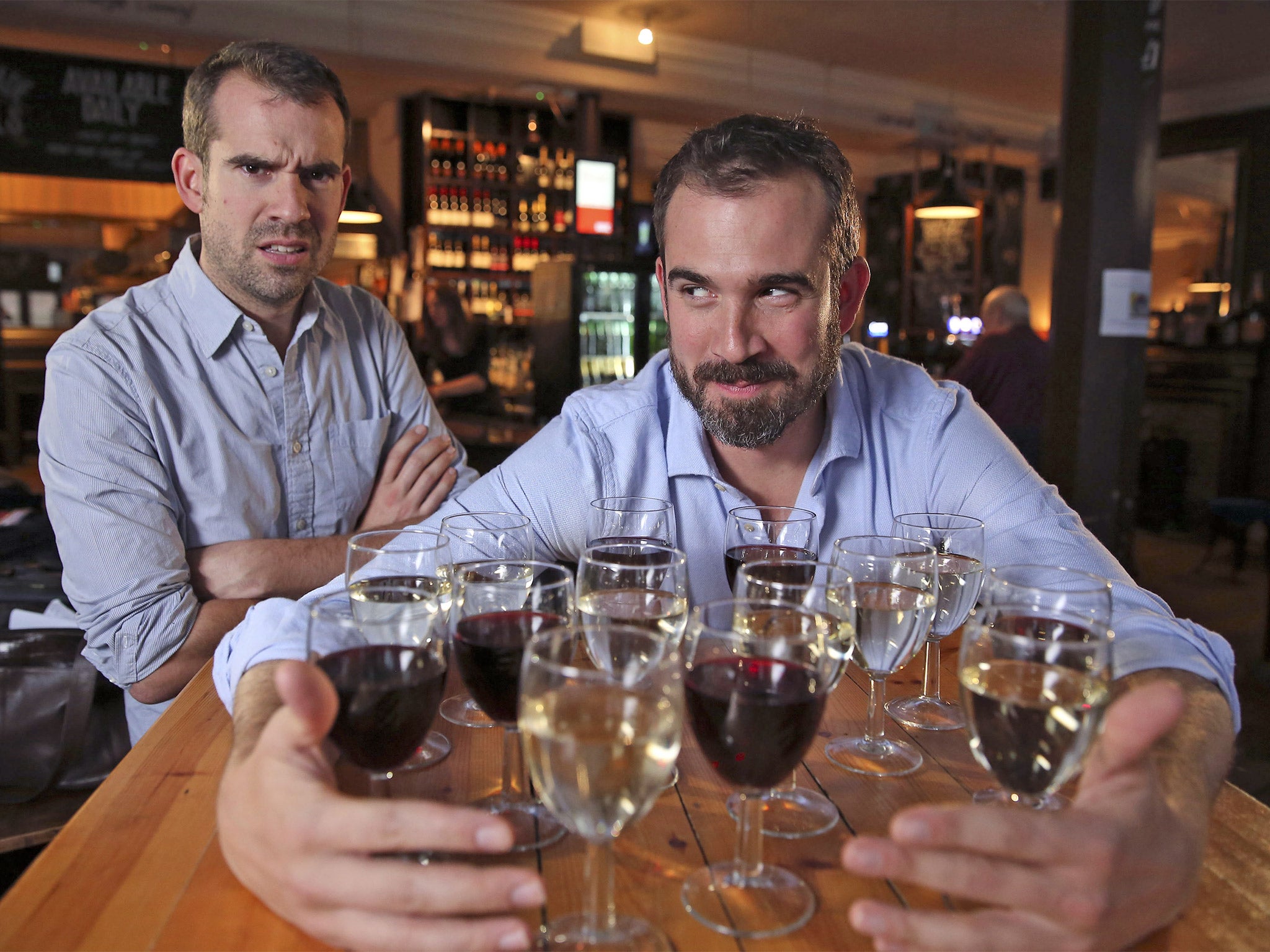Horizon: Is Binge Drinking Really That Bad?, TV review: Xand and Chris van Tulleken get smashed in the name of science
The twins are genetically identical, which makes them useful guinea pigs

Your support helps us to tell the story
From reproductive rights to climate change to Big Tech, The Independent is on the ground when the story is developing. Whether it's investigating the financials of Elon Musk's pro-Trump PAC or producing our latest documentary, 'The A Word', which shines a light on the American women fighting for reproductive rights, we know how important it is to parse out the facts from the messaging.
At such a critical moment in US history, we need reporters on the ground. Your donation allows us to keep sending journalists to speak to both sides of the story.
The Independent is trusted by Americans across the entire political spectrum. And unlike many other quality news outlets, we choose not to lock Americans out of our reporting and analysis with paywalls. We believe quality journalism should be available to everyone, paid for by those who can afford it.
Your support makes all the difference.Xand and Chris van Tulleken’s parents must be proud: two Oxford-educated doctor sons who spend their lives helping sick people all around the world alongside being intrepid, authoritative telly stars. They were at it again on Horizon: Is Binge Drinking Really That Bad? This time, doing the very British and less parent-friendly pursuit: getting smashed in the name of science. And entertaining, revealing science it was too.
The twins are genetically identical, which makes them useful human guinea pigs and Xand – a Ben Affleck lookalike– has a fetching beard, handy for viewers. They’ve previously tested the effects of faddy diets on the body and here, with the UK’s drinking guidelines under review, they gave booze the twin treatment.
Both boys tasked themselves with drinking the recommended 21 units (for men) a week for a month. Chris would spread his evenly over the seven days, with Xand sinking his quota in one evening. They’d then look at the impact on their bodies and health, while attempting to debunk some other drinking myths.
We watched them both studiously downing their vodka shots ending in Xand stumbling to the taxi. The morning after, Chris showed him and us video footage form the night before. One minute Xand was singing along to country tunes, spoiling for a night on ties, the next he was a weeping mess.
Seeing this capable doctor struggling to take off his own shoes was funny. Learning from the post-session analysis that at one point his blood alcohol level put him in the danger-of-death category when he was asleep, was not.
As for the classic hangover myths we all like to repeat, the boys demonstrated that we may have to rethink a few. First up was the accepted theory that alcohol is a diuretic and dehydrates you. With the help of some seriously big specimen containers, the ever-game van Tullekens showed us that Chris actually produced more urine than Xand when they’d drank the same amount.
And those smug gits who claim they don’t get hangovers are actually onto something. The twins consulted experts who confirmed that some people are genetically wired to process alcohol in a way that means they skip the morning-after-the-night-before feeling. But, major caveat, the booze still wreaks the same havoc elsewhere on their bodies.
The denouement after the month-long experiment was where the biggest surprise came. While Xand’s Saturday night-style binge had more of a damaging effect, the brothers both showed increased systemic inflammation and their livers were on their way to cirrhosis.
This was all explained in the twins’ accessible just-another-day-in-the-med-school-doctor’s-mess manner, with the help of some snazzy graphics. But despite the jovial mood, there was shock. Even the professor analysing the results was “flabbergasted”. You got a sense no one would be heading to the pub to get over it.
Join our commenting forum
Join thought-provoking conversations, follow other Independent readers and see their replies
Comments